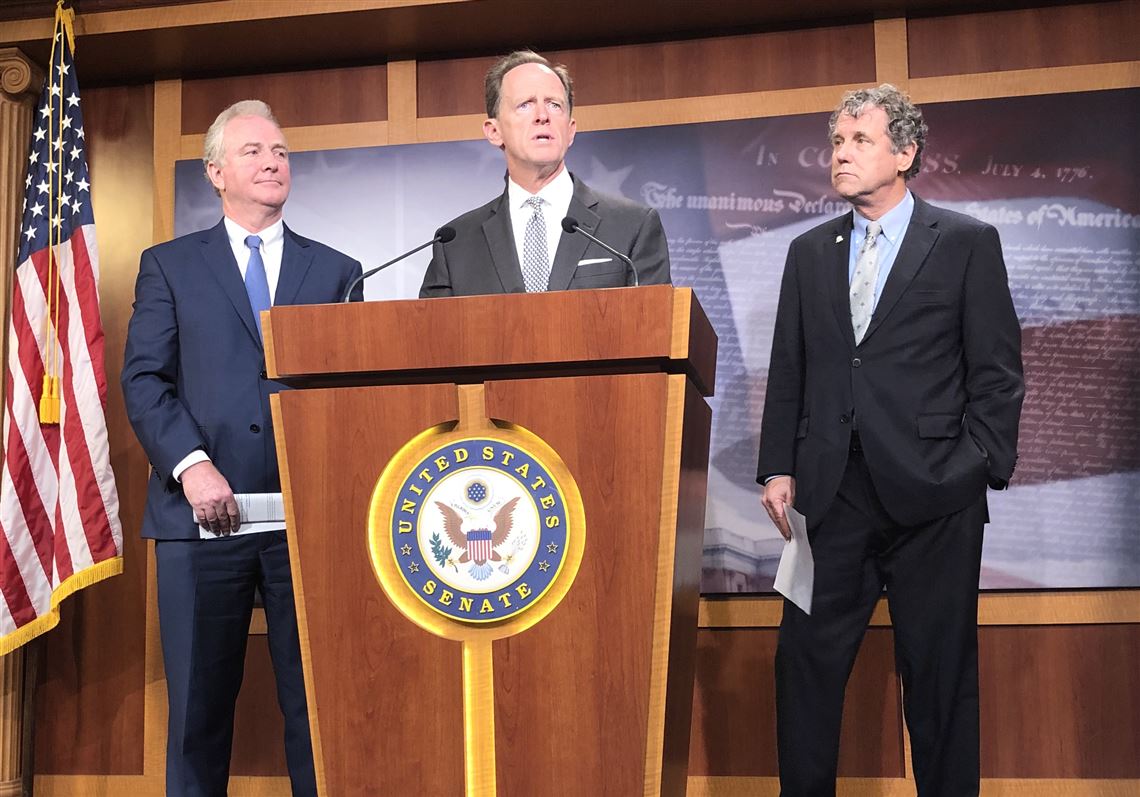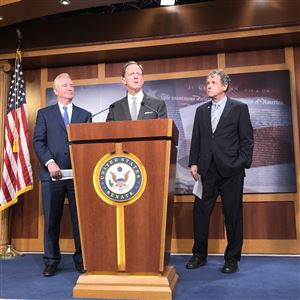WASHINGTON — As China moves to strip away some of Hong Kong’s autonomy, Sen. Pat Toomey, R-Pa., pushed on Monday for sanctions on Chinese officials and banks that enable Beijing to threaten the freedoms enjoyed by the global financial hub for more than two decades.
Mr. Toomey joined Sen. Chris Van Hollen, D-Md., to introduce the Hong Kong Autonomy Act, which calls for sanctions on entities and persons who don’t adhere to the “one country, two systems” framework that has governed Hong Kong since Britain returned the island to China in 1997. Hong Kong is part of China but has a largely separate legal and economic system.
The legislation was introduced after the Chinese Communist Party announced last week it would move forward to impose a sweeping national security law in Hong Kong to crack down on what it called subversion of state power and secessionist activities.
With the proposed law, “China has decided to treat Hong Kong like it treats the rest of China — crushing dissent, free speech, other basic freedoms,” Mr. Toomey said in a phone call with reporters.
Mr. Van Hollen said the sanctions were aimed at “Chinese banks complicit in supporting individuals who are gutting freedoms in Hong Kong” and were “designed to hit the Chinese Communist Party and the individuals involved in these decisions where it hurts.”
This is not the first time the two senators — both members of the Senate Banking, Housing, and Urban Affairs Committee — have teamed up across the aisle to target Chinese financial institutions that are seen as enabling to geopolitical tensions.
Last year, they pressed for sanctions on Chinese banks that do business with North Korea, as the Trump administration’s diplomatic relations with Pyongyang collapsed and North Korean leader Kim Jong Un threatened the U.S. with a “Christmas gift.”
That legislation — named for Otto Warmbier, the Ohio college student who died while imprisoned by North Korea in 2017 — was approved by Congress and signed into law in December. The bill was aided by Ohio Sens. Rob Portman, a Republican, and Sherrod Brown, a Democrat.
China, under President Xi Jinping, has gradually wielded sharper rhetoric in Hong Kong, prompting concern from U.S. officials. Hong Kong has an independent judiciary and its citizens have freedom of speech, press and assembly. They vote in free and fair elections for a chief executive and legislative council.
In recent years, growing unrest in Hong Kong, beginning with 2014 street protests dubbed the Umbrella Movement, has pushed back against Chinese influence. Hong Kong officials were forced to withdraw a proposed extradition law last year that would allow China to bring Hong Kong citizens to the mainland for trial.
The senators said the real teeth of the legislation lies in the secondary banking sanctions that would penalize financial institutions that conduct “significant transactions” with individuals or entities who “materially contribute” to violations of the Hong Kong framework. Such sanctions could affect most, if not all, major Chinese banks if Beijing’s national security law were to take effect.
Mr. Toomey described the banking sanctions as a way to heap political pressure on China.
“When business interests and financial interests realize this tool can be deployed, I think there’s going to be a whole new pressure on the government not to trigger this kind of response,” Mr. Toomey said. “So my hope is it will increase the likelihood that the worst potential behavior from Beijing is averted for the sake of the people of Hong Kong.”
Mr. Van Hollen added, “We want to make it very clear congress is serious about implementing these provisions.”
The bill has been referred to the Senate Banking Committee, which the senators said they hope will act quickly on the measure.
Daniel Moore: dmoore@post-gazette.com, Twitter @PGdanielmoore
First Published: May 26, 2020, 7:34 p.m.


















